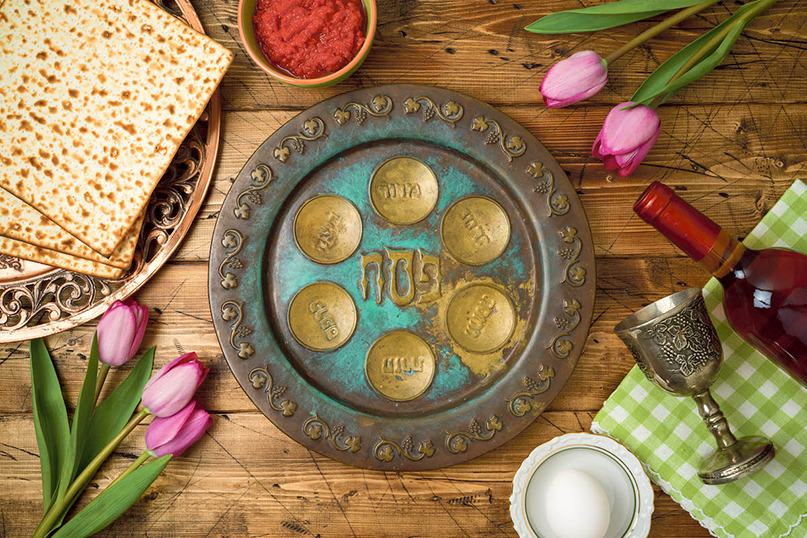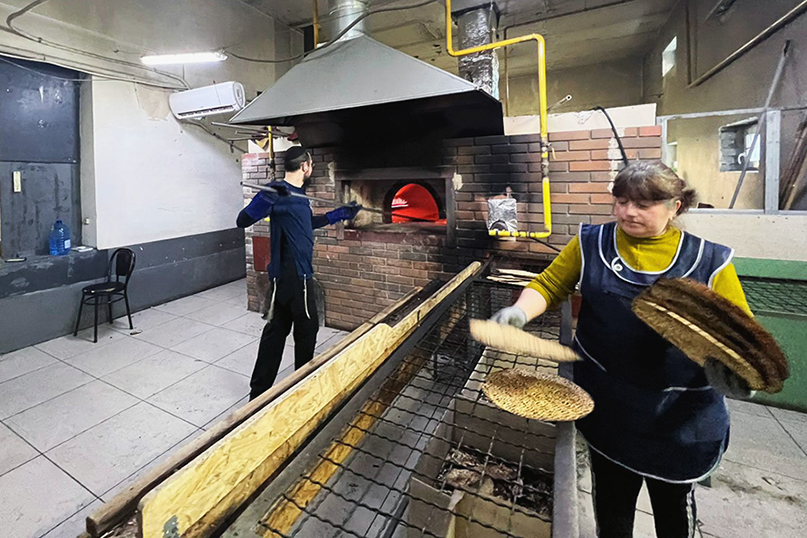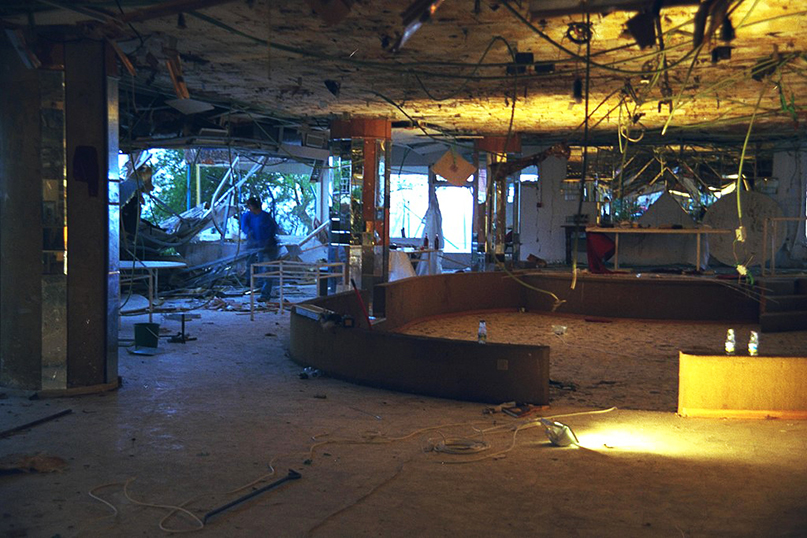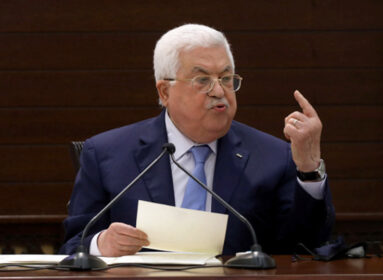
War in Ukraine could put a crunch on ‘shmura’ matzah supplies
By David I. Klein
(JTA) – On Feb. 24, two shipping containers laden with 20,000 pounds of shmura matzah were slated to head out of port in Odessa, Ukraine, on their way to Orthodox Jews in the United States.
Two hours before they were to be loaded onto a ship, Russia invaded.
The shipment was the last of 200,000 pounds of unleavened bread that Ukrainian matzah bakeries shipped to the United States this year, in addition to what they ship to Europe and Israel.
Now, technically outside of Ukraine’s customs zone, it could neither be returned to the country nor travel on to the United States.
Rabbi Meyer Stambler, head of the Chabad-affiliated Federation of Jewish Communities of Ukraine, estimates that his factories in Ukraine account for about 15-20% of the U.S. market share for shmura matzah, the carefully “guarded” variety that many observant Jews prefer to use during the seder.
Shmura matzah is handmade in small batches with a higher level of supervision than most other types of matzah. That already makes it significantly more expensive than the factory stuff. A single pound box of shmura matzah could go from anywhere between $20 and $60, the Forward reported in 2018. In contrast, Instacart offers at least three different brands of regular matzah that come in under $10 for a 5-lb. box.

“I think the U.S. market will feel it,” Stambler told JTA. “I think we are probably going to have a deficit of shmura matzah this year.”
The vast majority of shmura matzah produced abroad had already made it to the United States before the end of February, suggesting that the war in Ukraine is unlikely to be a major disruption. But an already overextended shipping industry after two years of pandemic, combined with rising gas and labor costs, have fueled rising prices for the matzah.
Barely over a month ago, Stambler would have said business was booming. “This year, we even opened a new matzah bakery, another branch, in Uman,” he said, referring to the Ukrainian city that is a pilgrimage site for Hasidic Jews.
Beginning baking around Hanukkah, the Ukrainian factories supply shmura matzah to Jewish communities in the entire former Soviet world in addition to their customers in the United States, Israel and Western Europe. They are sold in America under the brand names Tiferes and Redemption, among others.
In Dnipro, the city where Stambler and his main matzah factory are based, periods of pogroms in the 19th century, which sent Eastern European Jews fleeing to the United States, are no longer top of mind for residents. The Holocaust and even Soviet repression also seem to be more distant memories.
Today, Dnipro — known until 2016 as Dnepropretrovsk — is the most Jewish city in Ukraine, boasting the massive Menorah Center, a seven-branched building designed to look like the sacred candelabra and filled with kosher restaurants, wedding halls, ritual baths and other amenities for a Jewish community.
Though he has Israeli and American passports that would allow him to leave, Stambler has stayed behind to support the community, even after getting his family to safety.
“It’s very important to know that we’re staying here because we’re a part of the community, a part of the city.” Stambler said. “Just like President Zelensky said, each person has to fight on his own front. Our front is spreading Yiddishkeit.”
As Russian missiles struck the outskirts of Dnipro earlier this month, dozens still gathered for Shabbat, including many refugees who had come from harder-hit regions.
“We’re helping people from the whole Ukraine,” Stambler said. “From Kharkiv, from Zaporizhia, from Mariupol. We had 70 families who came out of Mariupol.”
Matzah production is still going on in town as well, though Stambler said about two thirds of the factory’s staff had fled. Those who remain are making matzah just for Ukraine.
“We’re going to make a very big campaign to bring the seder to every Jewish home,” Stambler said.
Stambler has plans for the 20,000 pounds in port as well.
“The only way I can bring it back to Ukraine is if it’s for the needs of the army,” he said.
Ukrainian men between 18 and 60 are forbidden from leaving the country in case they are needed for the war effort. Many Jews have already joined volunteer self defense units which are organizing across the country.
If the war stretches until Passover, something that appears increasingly likely as Russia continues to shell areas it had suggested it might Stambler said, there could be many Jewish soldiers looking for matzah in the Ukrainian Army.
Most of it will stay in Ukraine, he said, but a last truck is still scheduled to bring some of the surplus out to the United Kingdom. It will be the last international shipment of Ukrainian matzah this year.
20 years on, PA still glorifies the perpetrators of the Passover Seder Massacre
By Lt. Col. (res) Maurice Hirsch
(JNS) March 27, 2022, was the twentieth anniversary of the Passover Seder Massacre. As families sat down to Passover dinner at the Park Hotel in Netanya in northern Israel in 2002, a Palestinian suicide bomber detonated his explosive device in the dining hall, murdering 30 and wounding another 160.
Every month, the Palestinian Authority spends tens of thousands of dollars to reward the bomber’s family and pay salaries to the terrorists arrested by Israel for their part in the massacre.
Among the terrorists arrested for the attack are: Abbas al-Sayid, the main planner of the attack, who received 35 life sentences; Fathi Hatib, convicted for transporting the bomber (29 life sentences); Muhannad Shreim, who financed the attack (29 life sentences); and Muamar al-Sheikh, the deputy of senior Hamas figure Abbas al-Sayid (29 life sentences).
Each one of these terrorists, all of whom were arrested in May 2002, has by now been paid over one million shekels ($310,000) by the P.A. as a reward for their participation in the murder of 30 Israelis.
The P.A. has also paid hundreds of thousands of shekels to the families of Kais Adwan, one of the main planners of the attack, who was killed on April 5, 2002, and to the family of the suicide bomber, Abd al-Basset Odeh.
The P.A. has repeatedly honored al-Sayid, calling him, among other things, a “heroic fighter” and “the lion of the prison cells” (P.A. TV, Oct. 25, 2011).
In 2017, al-Sayid was among many other terrorist murderers glorified by Fatah – the Palestinian faction headed by P.A. chairman Mahmoud Abbas – in a post on the Fatah Facebook page:
“All blessings to our heroic prisoners carrying out the [hunger] strike of dignity: Karim Younes, Marwan Barghouti, Nael Barghouti, Ahmad Sa’adat, Abbas al-Sayid, Hassan Salameh, Zaid Bassisi, Bassem al-Khandaqji, Wajdi Joudeh, Maher Younes, Fuad al-Shubaki, Wael al-Jaghoub” (Official Fatah Facebook page, May 3, 2017).
At the graduation ceremony held in honor of Shreim on his completing a degree while in prison, Al-Quds Open University President Younes Amr referred to Shreim as a “prisoner knight” (official P.A. daily Al-Hayat Al-Jadida, Oct. 29, 2018).

Credit: IDF spokesperson’s unit via Wikimedia Commons.
The P.A. has also repeatedly glorified the bomber.
While praising the terrorists of the Jenin refugee camp, who “wrote a heroic epic in blood” during the 2000-2005 P.A. terror campaign, the official P.A. daily singled out Odeh for praise.
In January 2003, less than a year after the deadly attack, the P.A. Education Ministry even held a football tournament named in Odeh’s honor:
“In the football field of Tulkarem’s Abd Al-Majid Tayeh School, under the auspices of Jamal Tarif, director of the Education Department [of the P.A. Education Ministry]… the Tulkarem Martyrs’ (Shahids’) Football Tournament, the Championship of the Martyr Abd al-Basset Odeh, began with the participation of seven top teams, named after martyrs who gave their lives to redeem the homeland… Issam, the brother of the martyr [Odeh], will distribute the trophies” (Al-Hayat Al-Jadida, Jan. 21, 2003).
It’s important to stress that P.A. leader Abbas has admitted that the P.A. was responsible for this and all terror between 2000-2005. When explaining the P.A. demand that Israel release all the Palestinian terrorists, he left no room for misconceptions:
“P.A. chairman Mahmoud Abbas: ‘I demand [the release of] prisoners because they are human beings, who did what we—we—ordered them to do. We—the [Palestinian] Authority. They should not be punished while we sit at one table negotiating…
“This is war. One [i.e., Israel] ordered a soldier to kill, and I ordered my son, brother, or others, to carry out the duty of resistance [a euphemism for terrorism]. This person killed and the other person killed. So why say this person’s hands are stained with blood, and [he] must be kept in prison? He is a fighter just like any other fighter” (official P.A. TV, Feb. 14, 2005).
Other P.A. leaders have repeated this claim.
The P.A.’s adulation, glorification and rewarding of terrorists, including mass murderers, is something every decent human being should ferociously reject. People who praise and reward terrorist murderers, simply because they murdered Jews, are not and will never be partners for peace.
IDF Lt. Col. (res.) Maurice Hirsch is the director of Legal Strategies for Palestinian Media Watch. He served for 19 years in the IDF Military Advocate General Corps. In his last position, he served as director of the Military Prosecution in Judea and Samaria.
This article was first published by Palestinian Media Watch.








 Southern New England Jewish Ledger
Southern New England Jewish Ledger











